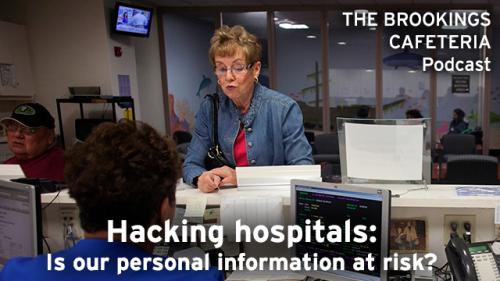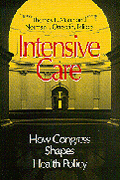- Niam Yaraghi
- See More
More On
In 2013, the U.S. Department of Health and Human Services made a significant change to the nation’s health care privacy law by finalizing the omnibus rules of the Health Insurance Portability and Accountability Act (HIPAA). The new rules expanded coverage of HIPAA to include business associates of health care providers, holding them to the same compliance standards as the providers themselves. Previously, business associates such as accounting firms, technology consultants, and others that have access to individuals’ personal health information, were not subject to civil or criminal penalties for violating HIPAA.
In a new study, Niam Yaraghi and Ram Gopal use data on breach incidents occurring in the years before and after the rules change to analyze its effect. Their results, visualized below, show that implementation of the omnibus rules led to a significant reduction in the number of privacy breaches among business associates, preventing 165 breaches that could have affected nearly 17 million Americans.
Medical Data Breaches, By Year
Since 2010, 1,819 data breaches affecting 500 or more patients have occurred in the U.S. originating from both health-care providers and their third-party business associates. In 2013, new HIPAA regulations required business associates to put in place safeguards to protect patient information. The rules have prevented an estimated 165 breach incidents among business associates. OCR announced the HIPAA omnibus rules on January 25, 2013. These rules became effective March 26, 2013, with compliance required by September 23, 2013.
Individuals affected by medical data breaches
Implementation of the HIPAA omnibus rules coincided with a spike in the number of privacy breaches in the health care market. Based on this observation, one could argue that had the omnibus rules not been in place, we would have observed a similar spike in the number of privacy breaches among business associates. In other words, implementation of the rules has dampened the effects of an otherwise powerful driver of privacy breaches.
| 2010 | 2011 | 2012 | 2013 | 2014 | 2015 | 2016 | 2017* | Total | |
| Healthcare organizations | 4M | 4.2M | 1.7M | 5.9M | 4.3M | 109M | 13.1M | 44K | 142.7M |
| Business associates | 1.5M | 8.9M | 1.1M | 1M | 8.4M | 3.9M | 3.6M | 0 | 28.6M |
| Total | 5.5M | 13.1M | 2.8M | 6.9M | 12.7M | 113.2M | 16.6M | 44K | 171.3M |
*Through March 1, 2017
Total individuals affected by medical breach type between 2010–2016*
More than 171 million Americans have had their privacy jeopardized by health care data breaches in the past seven years. The most common kind of data breach (13.8%) was the result of Theft, though more people were affected by Hacking/IT incidents, which can threaten the privacy of more individuals at one time.
-
Hacking/IT Incident
128.6MHacking/IT Incident Top 5:
- 78.8M, 03/13/2015Anthem, Inc. Affiliated Covered Entity, IN
- 11M, 03/17/2015Premera Blue Cross, WA
- 10M, 09/09/2015Excellus Health Plan, Inc., NY
- 4.5M, 07/17/2015University of California, Los Angeles Health, CA
- 3.9M, 07/23/2015Medical Informatics Engineering, IN
-
Theft
23.5MTheft Top 5:
- 4.5M, 08/20/2014Community Health Systems Professional Services Corporation, TN
- 4M, 08/23/2013Advocate Health and Hospitals Corporation, IL
- 1.7M, 02/11/2011GRM Information Management Services, NJ
- 1.2M, 06/03/2010AvMed, Inc., FL
- 1M, 11/01/2010BlueCross BlueShield of Tennessee, Inc., TN
-
Loss
8MLoss Top 5:
- 4.9M, 11/04/2011Science Applications International Corporation, VA
- 1M, 10/07/2011The Nemours Foundation, FL
- 800K, 07/19/2010Iron Mountain Data Products, Inc., PA
- 483K, 02/12/2016Radiology Regional Center, FL
- 75K, 11/10/2014Visionworks Inc., TX
-
Unauthorized Access/Disclosure
6.7MUnauthorized Access/Disclosure Top 5:
- 2M, 09/10/2014Xerox State Healthcare, LLC, TX
- 652K, 08/12/2016Bon Secours Health System Incorporated, MD
- 475K, 11/04/2010Puerto Rico Department of Health – Triple S Management Corp.
- 308K, 10/03/2014Touchstone Medical Imaging, LLC, TN
- 228K, 04/24/2012Department of Health and Human Services, SC
-
Other/Unknown
3.2MOther/Unknown Top 5:
- 1.9M, 04/14/2011IBM, NY
- 315K, 04/18/2012Emory Healthcare, GA
- 188K, 07/01/2013RCR Technology Corporation, IN
- 160K, 12/15/2014Walgreen Co., IL
- 84K, 04/05/2010Providence Hospital, MI
-
Improper Disposal
961KImproper Disposal Top 5:
- 277K, 07/11/2013Shred-it International Inc., TX
- 189K, 05/07/2013Digital Archive Management, TX
- 114K, 01/25/2016Community Mercy Health Partners, OH
- 55K, 11/02/2011Lebanon Internal Medicine Associates, PA
- 50K, 06/04/2015Lancaster County EMS, SC
*Some data breaches fall into multiple categories
Related Content

Niam Yaraghi, Ram Gopal, Xu Han
December 15, 2016

Niam Yaraghi, Fred Dews
April 15, 2016

Nicol Turner Lee
March 29, 2018
Related Books

Norman J. Ornstein, Thomas E. Mann
August 1, 1995

Joshua M. Epstein, Derek A. T. Cummings, Shubha Chakravarty, Ramesh M. Singha, Donald S. Burke
April 22, 2004

Henry Aaron, William B. Schwartz
January 20, 2004
Authors

The Brookings Institution is committed to quality, independence, and impact.
We are supported by a diverse array of funders. In line with our values and policies, each Brookings publication represents the sole views of its author(s).



